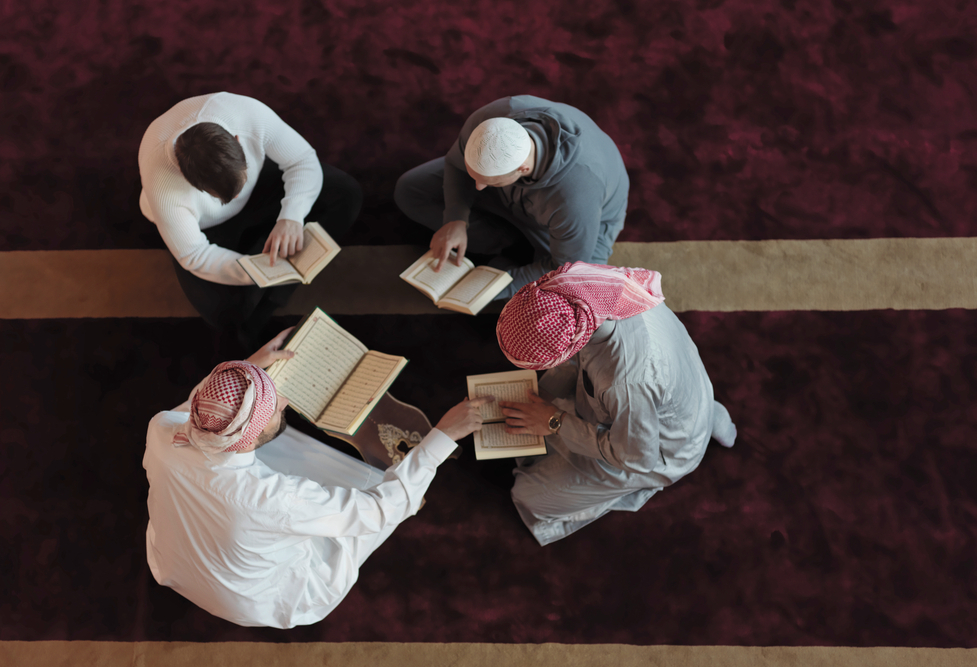What Is the Ruling on Reciting Surat al-Yasin Three Times on the Night of the 15th of Sha’ban?
Answered by Shaykh Irshaad Sedick
Question
Is there any basis in Sacred Law for reciting Surat al-Yasin three times on the 15th of Sha‘ban?
Answer
In the Name of Allah, the Most Merciful and Compassionate.
May Allah alleviate our difficulties and guide us to what pleases Him. Amin.
Origin of the Practice
The recitation of Surat al-Yasin on the night of the Middle of Sha‘ban is a traditional practice of generations of Muslims, especially followers of the Ba ‘Alawi spiritual path. The practice is not based on a specific verse of the Quran or a specific practice but rather on the blessed insight and experience of spiritual luminaries. [Muhammad Ibn ‘Alawi al-Maliki, Madha fi Sha‘ban]
Basis of the Practice
The practice is based on the minority exegetical opinion that the Blessed Night in which matters are decreed refers to the night of the Middle of Sha‘ban (the majority holds it to be Laylat al-Qadr).
The three recitations are usually accompanied by beautiful intentions and prayers appropriate for an occasion that could be connected to the dispatch of Divine Decree significantly, and Allah knows best. [ibid.]
Ruling on the Practice
Reciting Surat al-Yasin, or any other Sura, or the entire Quran on any day or night of the year, including the night of the middle of Sha‘ban, is permissible and praiseworthy as long as it is not held to be a specific legislated part of Sacred Law [ibid.]
The night of the Middle of Sha‘ban is one of the most religiously significant nights of the year in Islam. While no authentically established Sunna practices are specifically connected to this night, every Muslim should take advantage of its spiritual blessings through great worship.
In light of the significance of the night, spiritual luminaries, based within traditional Islam, guided their followers to wholesome, divinely inspired, and proven practices which conform with the Quran and Sunna. As such, these practices are permissible if people don’t believe them to be Sunna or compulsory, and Allah knows best.
Good Practices Not Specifically from the Prophet (Allah Bless Him and Give Him Peace)
Generally, it is easy to assume that if the Prophet (Allah bless him and give him peace) did not specifically instruct a practice or implement it himself, then it has no basis. The following incident demonstrates that the Companions (Allah be pleased with them) sometimes implemented practices within the general framework of Sacred Law but not on a specific example from the Prophet (Allah bless him and give him peace).
The Prophet (Allah bless him and give him peace) sent an army unit under the command of a man who used to lead his Companions in the prayers and would finish all of his recitations with Surat al-Ikhlas (Quran, 112:1).
When the army returned from the battle, they mentioned that to the Prophet (Allah bless him and give him peace). He said to them, “Ask him why he does that.” They asked him, and he said, “I do so because it mentions the qualities of the Beneficent, and I love to recite it in my prayer.”
The Prophet (Allah bless him and give him peace) said to them, “Tell him that Allah loves him” [Bukhari]
I pray this is of benefit and that Allah guides us all.
[Shaykh] Irshaad Sedick
Checked and Approved by Shaykh Faraz Rabbani
Shaykh Irshaad Sedick was raised in South Africa in a traditional Muslim family. He graduated from Dar al-Ulum al-Arabiyyah al-Islamiyyah in Strand, Western Cape, under the guidance of the late world-renowned scholar Shaykh Taha Karaan.
Shaykh Irshaad received Ijaza from many luminaries of the Islamic world, including Shaykh Taha Karaan, Mawlana Yusuf Karaan, and Mawlana Abdul Hafeez Makki, among others.
He is the author of the text “The Musnad of Ahmad ibn Hanbal: A Hujjah or not?” He has served as the Director of the Discover Islam Centre and Al Jeem Foundation. For the last five years till present, he has served as the Khatib of Masjid Ar-Rashideen, Mowbray, Cape Town.
Shaykh Irshaad has thirteen years of teaching experience at some of the leading Islamic institutes in Cape Town). He is currently building an Islamic online learning and media platform called ‘Isnad Academy’ and has completed his Master’s degree in the study of Islam at the University of Johannesburg. He has a keen interest in healthy living and fitness.
